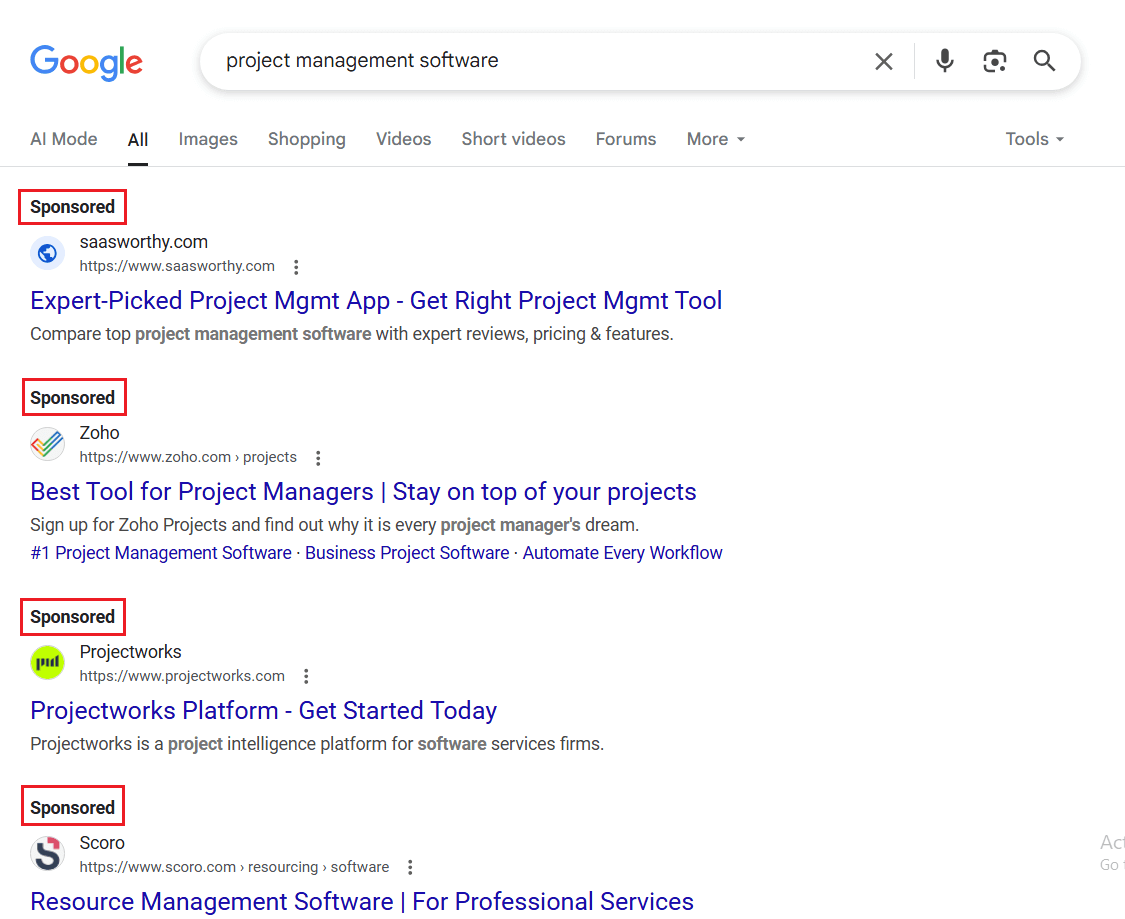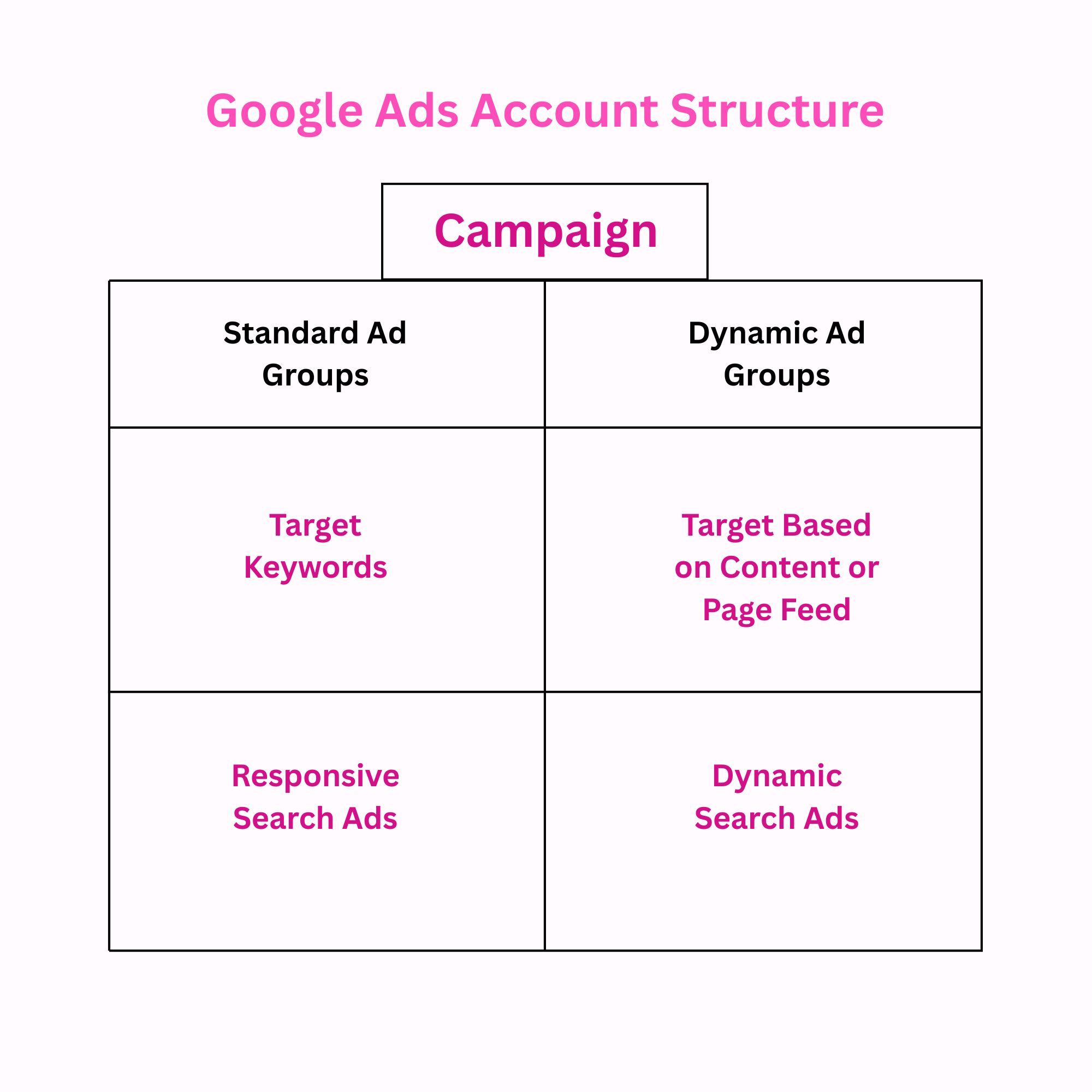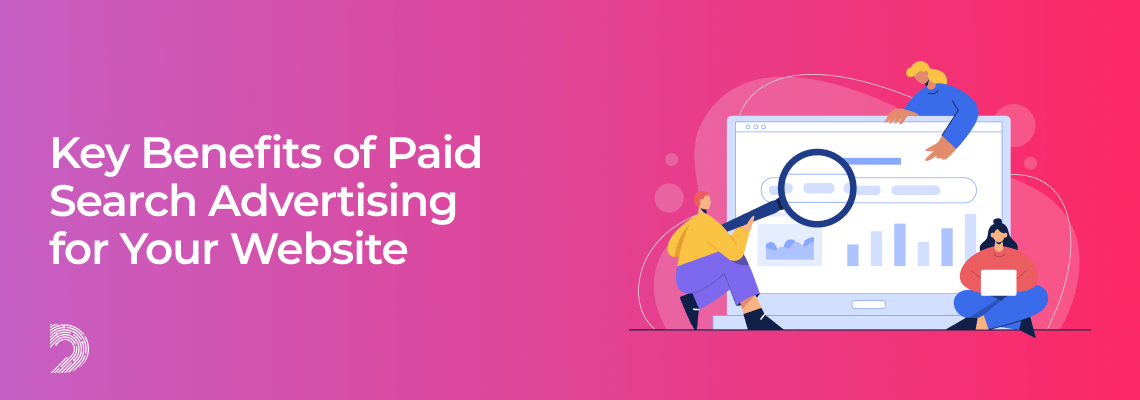Table Of Contents
If you rely solely on organic traffic to generate leads, you’re missing out on serious profits. Search ads make shopping easier for over 75% of users—and they deliver a 35% higher conversion rate than organic traffic.
It’s not uncommon for many businesses to shy away from paid search because it requires a constant cash outflow, but when done right, the ROI can be staggering.
Contrary to a popular marketing myth, paid search isn’t just about quick results—the benefits go well beyond that.
What Is Paid Search Advertising
Paid search advertising—also known as search engine marketing (SEM) or pay-per-click (PPC)—is a form of digital marketing where businesses or publishers pay search engines like Google to display ads directly on the search engine results page (SERP).
SERPs include both organic and paid results, but paid ads typically appear higher—and get more exposure—because they generate direct revenue for Google. These ads are labeled “Sponsored” and usually occupy the top three and bottom three spots on a results page.

Paid search ads work on a PPC model, which means advertisers are charged every time someone clicks on their ad. Advertisers bid on keywords—and that bid helps determine their position on the SERPs. It’s controllable, measurable, and gives you a clearer picture of your return on ad spend (ROAS). In fact, around 80% of businesses rely on paid search to grow their bottom line.
The million-dollar question: Why should I invest in paid search ads when I can get organic rankings for free?
First of all, organic ranking—aka SEO—isn’t really free. It takes time, effort, and expertise to create content (and earn enough backlinks) to reach the first page. And even once you rank, Google’s constant algorithm updates make it harder and harder to stay there.
Yes, in the long run, SEO is probably the most cost-effective tool in your arsenal. But if you need leads fast, paid search is the way to go.
Why Is Paid Search Important: Crucial Benefits That No One Is Talking About
Nearly 4 billion searches happen every day—and as a growing business, standing out is no easy feat. That’s where a solid paid search strategy can give you an edge.
You’ve probably heard about the usual benefits of search engine advertising:
- Immediate results from your marketing efforts
- Higher visibility for your website
- Better site-wide conversions
- ROI that’s controllable and measurable
- Campaigns that uncover valuable data insights
But that’s just the tip of the iceberg. Paid search ads offer much more than meets the eye. The real value lies in the overlooked details—the ones no one talks about.
Dynamic Search Ads: A Step Up from A/B Testing
The basic structure of a Google Ads campaign looks like this:

If you’re a beginner, you might recognize the structure on the left: an ad group with target keywords, inside of which you have responsive search ads.
The other column is dynamic search ads. With dynamic ads, instead of targeting keywords, you target content—either what Google finds on your site or what you feed it manually. Based on that data, Google automatically creates dynamic ads for your campaign.
The biggest advantage of dynamic search ads is speed. You spend zero minutes on keyword research, and the setup is much easier. But more importantly, they go beyond A/B testing in several key ways:
- You can test more variations in less time.
- You don’t have to wait for results, extract insights, and then act—Google does all that automatically in real time.
- Depending on the user, Google dynamically switches headlines, descriptions, and URLs to deliver the best-performing combination—making it more efficient and scalable than A/B testing.
High-Intent Targeting Delivers High Conversion
What makes paid search ads more conversion-focused than organic traffic is how they leverage buyer intent. Whether you're using keyword research or dynamic search, paid ads target specific queries—coming from people with real needs and wants who are actively seeking targeted information.
These aren’t random web surfers who stumble across your site while browsing for something similar. They’re already searching for a solution like yours and are interested in evaluating your product or service—so an action is much more likely to happen, and soon.
Negative Keywords = Less Wasted Spend
Outdated marketing leads to wasted ad spend, but paid search advertising offers a smart solution: negative keywords.
Negative keywords are irrelevant or unwanted search terms for which you don’t want your ads to appear. When you add negative keywords to your account, your ads won’t show up for those terms.
Think of negative keywords as a filter that ensures your ads are only seen by an audience highly relevant to your business. This saves you money by blocking junk traffic—people who click but don’t convert.
Say you’re running a paid search campaign for your high-end luxury spa and salon. It makes sense to bid on the keyword “salon,” right? But if you do, your ad will show to everyone searching for “salon,” including people who can’t afford your services. You only want to reach those specifically looking for luxury options.
In this case, you’d exclude searches related to cheap or budget spas and salons by adding terms like “cheap” and “budget” to your negative keyword list. So, your ads won't be triggered when someone searches for a cheap salon or spa. This way, you avoid junk traffic and use your ad spend more efficiently.
Ready to take advantage of paid search advertising?
Our team at Digital Footwork can plan and execute a high-intent, targeted paid search campaign to boost conversions and maximize ROI
Contact us today to get started.

